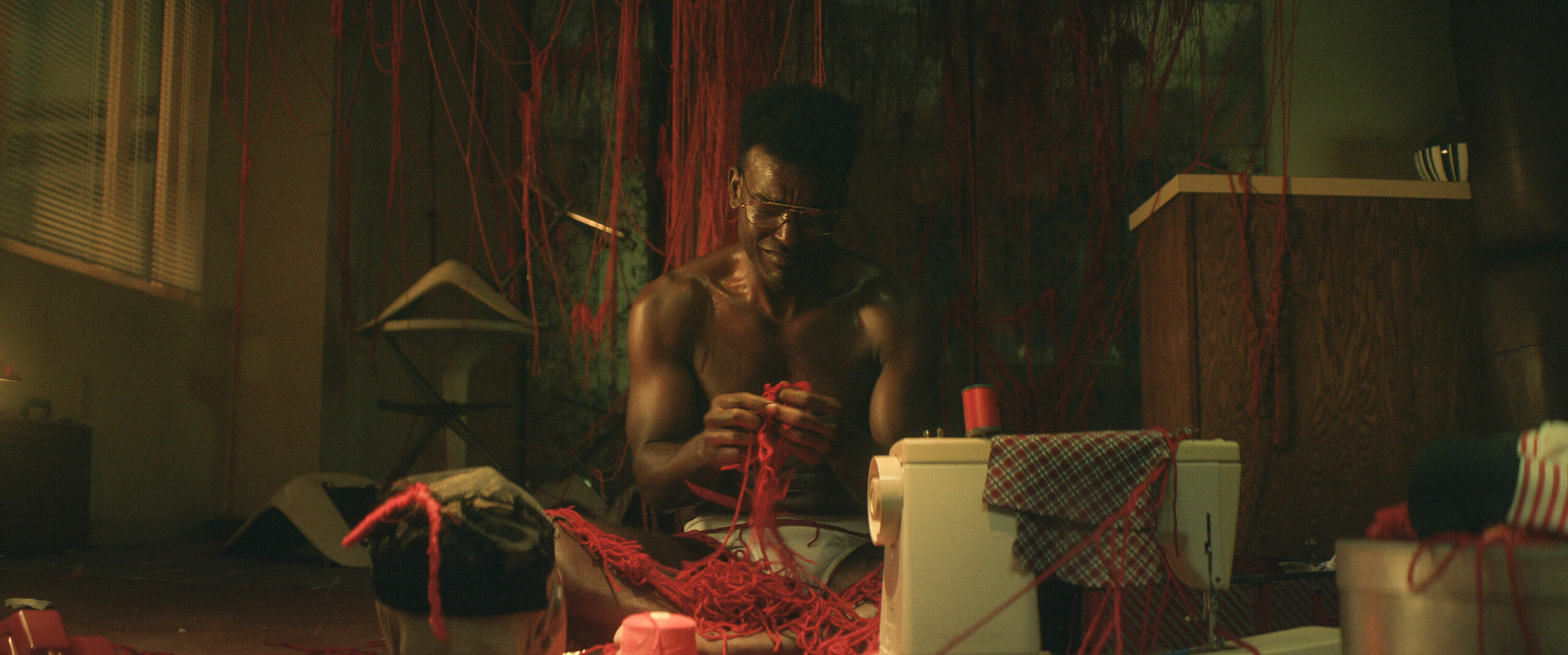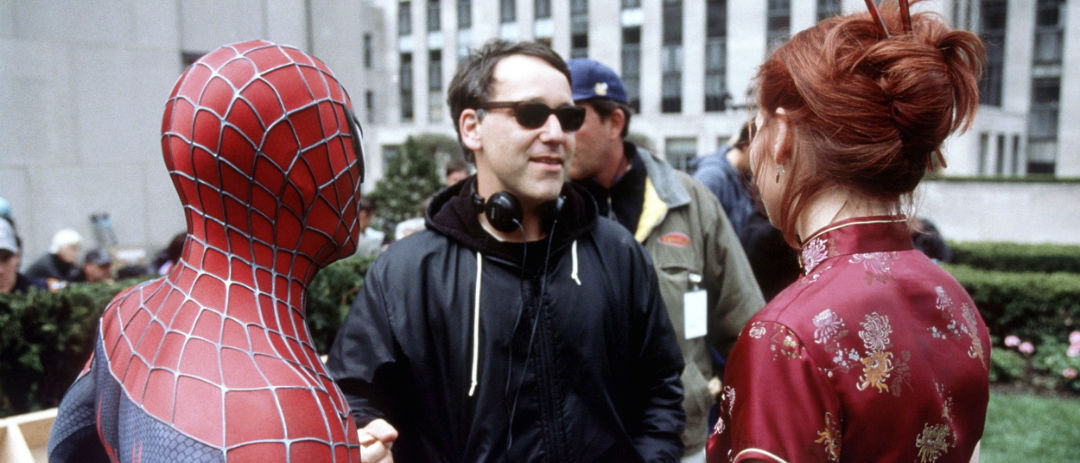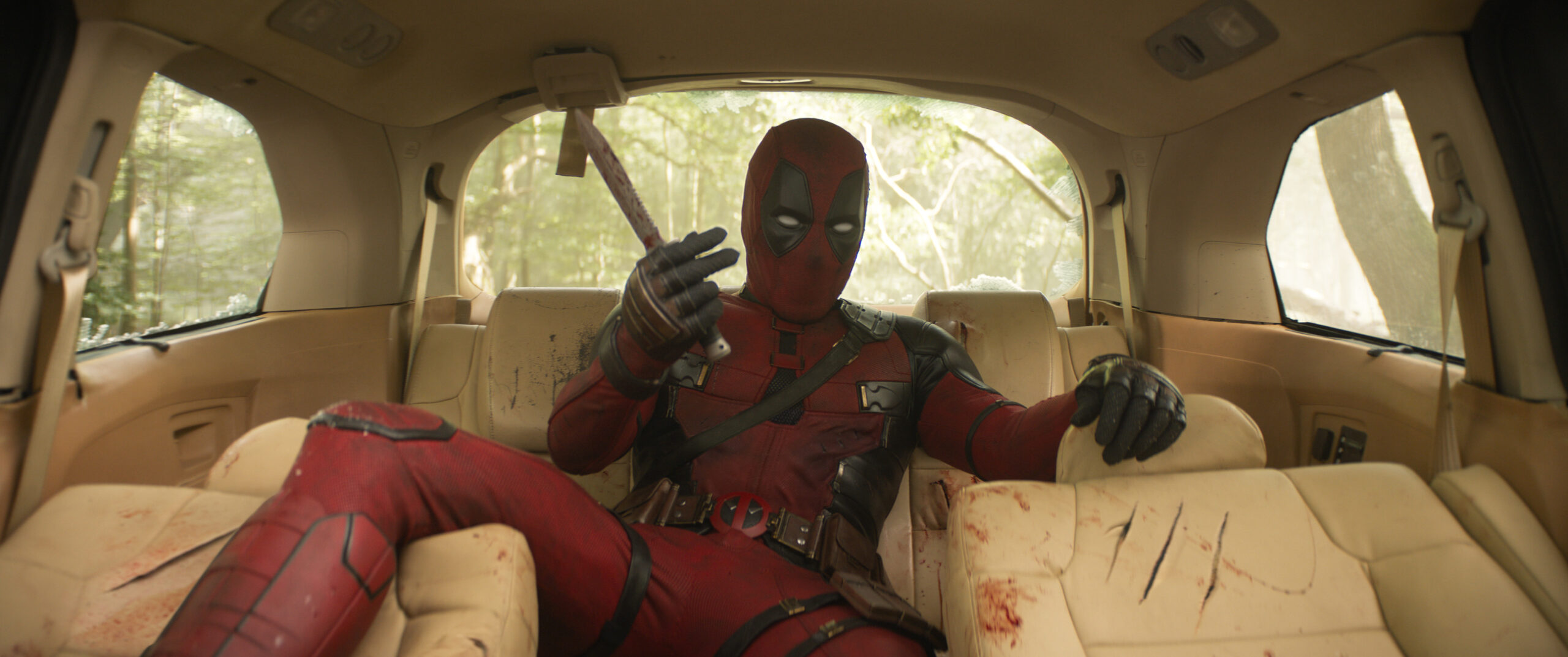What if you could outsource your own suicide? Perhaps you’ve hit one too many brick walls in your life and you just want to end it all…but you lacked the conviction to actually follow through with it. That’s exactly the problem William is going through in writer-director Tom Edmund’s dark comedy Dead in a Week (or Your Money Back).
So what does William do? He hires an assassin who is in the business of killing people who want to die. Problem is, as soon as he signs his own death warrant, he seems to have found a reason to live, which puts William at odds with the man he hired to take him out. It’s a very dark subject matter and is one that could have come across as tone deaf and insensitive, and that’s something Edmunds knew well and good going into it.
LRM had a chance to speak on the phone with the filmmakers and in our discussion, we go into that very topic: is it okay to make a lighthearted film about suicide?
Dead in a Week (or Your Money Back) is out in select theaters now! Check out our full interview down below!
LRM: I know you’re the writer and director of the film, so how did it even start as writing it?
Edmunds: So it started after I made a short film with the two producers of Dead In A Week. We made a short film together and they said to me, “Look, this has gone pretty well. Let’s do something else, and maybe let’s do something longer, let’s do something feature length”. So, I had been having, I’d been rattling around an idea about a kindly assassin that’s only killed people that wanted to die. I kind of thought that he was a bit of an interesting character. And then, one of my producers, Nick, he said to me, “you know, I’ve been thinking of a character, a guy who’s suicidal, but he doesn’t have the bravery to commit to it fully, he needs someone else to do it for him”. So, we kind of put those two characters in the same story together, and that was the start of Dead in a Week.
LRM: In this case it’s funny, it’s like a dark comedy, but it’s also a sensitive topic. I mean, suicide and the way you’re able to portray it. How challenging was that?
Edmunds: Listen, it was a challenge, it’s definitely a challenge when you pitch the movie, because you can’t really avoid the suicide subject in the pitch and people were very nervous that it was a comedy and that we were attacking this quite difficult, controversial subject. But, I was always clear that I wanted my film to be about something, and I was always quite positive of the fact that even though the subject matter is slightly taboo, that I was telling the story in a responsible enough way, and ultimately I was telling a hopeful and positive story.
So, actually, I felt that that’s the kind of thing that we need when discussing a topic like suicide. We need to de-stigmatize it, we need to open about talking about it, and we need to be more positive about the stories. Ultimately, Dead in a Week is not a film about someone killing themselves, it’s a film about someone not killing themselves. It’s a film about someone discovering reasons to not kill themselves. So, I was always sort of hopeful that we would find a way of telling that story in a responsible, but a positive way.
LRM: Yes, and at the same time it also covers the topic of speaking of death. One of the lines that you mentioned, I don’t recall the exact words, but you mentioned something about that death is like one of the things that everyone has in common at the end.
Edmunds: Yeah, absolutely. I mean, I think there’s so much of this in — when you start watching something- I think I’m directing something in quite an imaginative way, but actually I realize that I’m processing a lot of my inner thoughts, I guess. I think that we have a slightly strange attitude towards death, and yet it is something that is, you know, it’s the inevitability in our lives, and it’s something that is around us and lots of people live with that every day, and there’s losses, and I think that the event itself is still quite a taboo subject. So, I don’t know if it was me trying to, kind of, philosophically justify it to myself, or trying to make it less scary or something. I definitely tried with the film, and I know that this is a very ambitious thing, especially being a first film.
But, like I said, I wanted to try something with my first go. I wanted to investigate some ideas and do so in an entertaining way. I was really thinking about what is it that gives purpose in our lives, what is the things that mean something. At the end of the day, what are the things that we really look back on and we really value in our lives? And I kind of take the conclusion that it’s no more complicated than the relationships you make with other people, be they romantic relationships, familial relationships, or just friendships. When you connect with other people those are the things that really create a meaning within your own life. So, that’s what I was trying to do. (Laughs) Sounds ambitious.
LRM: No, but it made sense, it actually did. Well, reality at the end, that’s actually true. I really enjoyed how you, it’s pretty much the whole concept of outsourcing a suicide, outsourcing your own death. I mean, it was pretty comical, the way you brought it in, you have this assassin with a brochure, how did you come up with that layout?
Edmunds: So, one of the things is the concept of euthanasia, the concept of being in charge of your own life to it’s end-point, is something that, again, it’s a controversial subject. I feel like definitely, in certain situations, and I can understand why it’s not law, but, I can see- I think that people do have the right to determine their own existence. So, it was something that I kind of wanted to bring out and I had this idea of a kindly assassin. And then, the idea with the brochure was just that, if you could choose how you would die, what would you choose?
Be it that, we decided that it could be a bit like a menu that you would be able to choose from, and then we felt that the menu would be best to be illustrated. So, with the production designer, the production designer and I discussed lots of these different things and we came up with all of those concepts together, and then he had an illustrator illustrate those. But, those kind of visual details are something that I’m really proud of in the film. I feel like there’s a richness in that, and I think it’s a successful part of the film.
LRM: Yes, for sure it was, it was just like wow, that’s really creative. Very creative. You can outsource anything now.
Edmunds: Yeah, exactly. Exactly.
LRM: I wanted to say, I enjoyed Leslie’s character. The fact that he’s not just the assassin. You get to see his vulnerable side, you know, with the wife and his struggle retiring.
Edmunds: Yeah.
LRM: I really liked him and, you know, it kind of reminded me of another likable assassin from “Leon The Professional” from 1994.
Edmunds: Yeah.
LRM: It’s like, you weren’t sure. You were kind of rooting for him at the end, you know?
Edmunds: Yeah, so that kind of dynamic was really instructional in the film because ultimately you’ve got two main characters in Leslie and William and almost like. Hopefully, you want William to survive, but if William survives then Leslie’s ultimately gonna have to retire before his retirement, which is a thing that he absolutely doesn’t want. So, you’re pitching these two, you’ve basically got two heroes, and you’re kind of pitching them against each other. Which, I thought was an interesting dynamic. But, so much of Leslie’s character is, I mean, there are two things of it, really.
One is that, I think that in the modern world, we define ourselves so much by what we do, and I think that that’s quite a reductive way of looking at someone’s life. And, this is something that actually the character does himself. He has defined himself by the job that he does, because it’s an extreme job, it’s an unusual job. So, he feels that without that he doesn’t have anything else to live for. And I think that this is something that people really struggle with in retirement. I know that I’ve seen my own dad, who had a successful career, I’ve seen him scratching around for projects to do because he doesn’t quite know how to fill his time.
I think that we do define ourselves by our jobs. But then, that’s what’s so nice about that relationship between Leslie and his wife, Penny, is that when she says at the end, “I know you love your job, but it’s not all you are, not to me”, because actually there’s a richness in his life that he can’t see, that he needs her to point out to him. That’s what she does, she’s ultimately the wise one in that relationship. I mean, both those female characters are kind of, much more intelligent and wise than their male counterparts. They know what’s going on, really.
LRM: Yes. Just to finalize, I think that the scene that took it away was where you have the wife, you have her discussing her little crafting pillow to Harvey and you have this other stuff going on, it was memorable. It was so funny, it was so perfect. I do have to compliment on that scene.
Edmunds: Oh, good. Thank you. I can be quite self-analytical and also self-critical, but that scene between Harvey and Leslie and Penny was my favorite scene in the film, and I just think, from a writing point of view, I was really pleased with it. I think the dynamics of the scene worked well and that you get those three great actors and it’s just such a joy as a director then, oh my God- to work with those three, to see that scene coming together, I was like … it was pretty overwhelming, to be honest. I was just, like, that is beyond my wildest dreams.
LRM: Well, that was the highlight of the film, in my opinion. I loved it.
Edmunds: Great.
LRM: It was creative, it was so perfect. It’s like, oh my gosh, I was just laughing, that’s not a scene that you expect you’re just laughing. Not knowing what’s gonna happen.
Edmunds: That’s great. Good, good, good.
LRM: And, by the way, you still left us in suspense at the end, so I’m wondering …
Edmunds: Yeah, yeah, yeah. Okay, well I know, that was sort of much to say at the end. So, I feel like whatever you feel like the ending is, almost like that — you said something like you as a person, however, you decide the end goes down. But, for me, as a writer, I think that William’s story, in terms of the film, is completed at that moment.
Dead in a Week (or Your Money Back) is out in select theaters now!
Don’t forget to share this post on your Facebook wall and with your Twitter followers! Just hit the buttons on the top of this page.

 FOR FANBOYS, BY FANBOYS
Have you checked out LRM Online’s official podcasts and videos on The Genreverse Podcast Network? Available on YouTube and all your favorite podcast apps, This multimedia empire includes The Daily CoG, Breaking Geek Radio: The Podcast, GeekScholars Movie News, Anime-Versal Review Podcast, and our Star Wars dedicated podcast The Cantina. Check it out by listening on all your favorite podcast apps, or watching on YouTube!
Subscribe on: Apple Podcasts | Spotify | SoundCloud | Stitcher | Google Play
FOR FANBOYS, BY FANBOYS
Have you checked out LRM Online’s official podcasts and videos on The Genreverse Podcast Network? Available on YouTube and all your favorite podcast apps, This multimedia empire includes The Daily CoG, Breaking Geek Radio: The Podcast, GeekScholars Movie News, Anime-Versal Review Podcast, and our Star Wars dedicated podcast The Cantina. Check it out by listening on all your favorite podcast apps, or watching on YouTube!
Subscribe on: Apple Podcasts | Spotify | SoundCloud | Stitcher | Google Play






